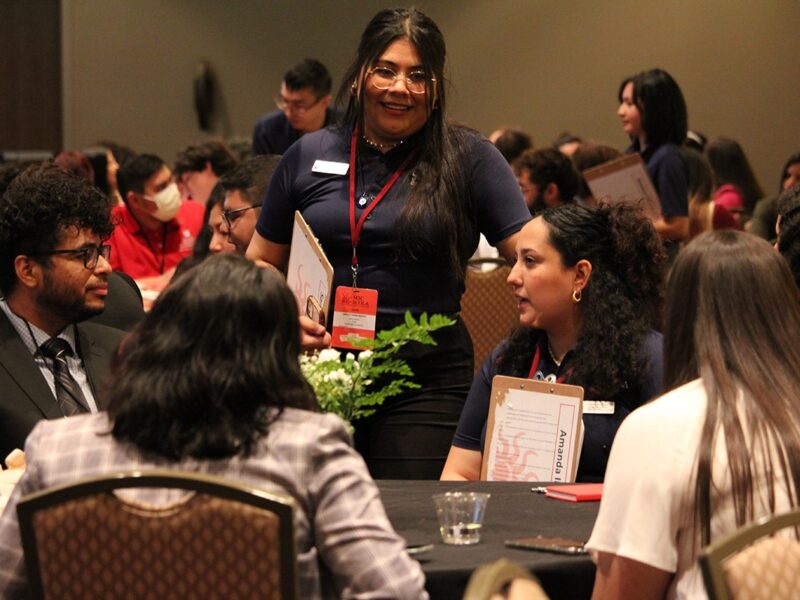Researchers Study Effect Of Stereotypes On Mental Health
Stereotypes: conform to them and experience pressure to achieve and sustain. Don’t conform and risk suffering from shame or guilt. Either way, stereotypes and unrealistic expectations are harmful to mental health, say researchers at Texas A&M University.
Specifically, the researchers are studying stereotypical and cultural influence on Houston’s Chinese American immigrant population. As part of their study, Project Chinese American Successful Living (CASL), they want to understand the factors that contribute to positive or negative mental health and academic performance of immigrant students.
Jeffrey Liew, associate professor of learning sciences, along with Bonny Chang, a third-year counseling psychology doctoral student, and Peggy Chang, a fourth-year psychology doctoral student, collected data over the past year using online surveys to measure the cultural beliefs, psychological health and academic achievements of Chinese American adolescents and their parents.
The team found that 40 percent of Chinese American adolescents reported clinically significant depressive symptoms, which was unexpectedly high for a community sample. Further, those who reported clinical levels of depression were less willing to seek mental health services.
Liew said he believes the findings may represent the idea of the ‘model minority’ stereotype. Statistics based on high school grade point averages and standardized tests indicate that Asian Americans (as a group) often represent the highest proportion of high academic achievers relative to other ethnic minority groups in the United States. For this and other reasons, Asian Americans have often been referred to as the ‘model minority.’
“The ‘model minority’ stereotype ignores the fact that the Asian American population is highly heterogeneous and many are underperforming, undereducated and have low socioeconomic status,” said Liew. “This stereotype creates extreme pressures to achieve academically, which potentially harms Asian American youth by placing them at risk for mental health and adjustment problems.”
The research team also found that parents and their children often experience an acculturation gap when there are discrepancies across the generations in terms of adopting and/or retaining cultural values and practices. Because of this, youth from immigrant families often find themselves straddling two cultural worlds. When the acculturation gap becomes too wide between the parent and child, it may strain the parent-child relationship and place the child at risk for identity and adjustment problems.
“The findings in both studies highlight a need for mental health care for Chinese American youth, particularly when those who may need services most are least willing to seek help,” said Liew. “Mental health and school professionals who work with culturally diverse families need to be aware of the stereotypes and parent-child dynamic of immigrant families, so they can better see them for who they are rather than their stereotypes.”
Bonny Chang and Peggy Chang presented the findings at the 2011 national convention for the Asian American Psychological Association in Washington, D.C.
The team plans to include preschool and elementary school-aged children, as well as Vietnamese and Asian Indians — the two largest Asian American ethnic sub-groups in the Houston area — in the next phase of Project CASL.
Project CASL is made possible by a grant from the Hogg Foundation for Mental Health.
Media contact: Tura King, Texas A&M News & Information Services.





